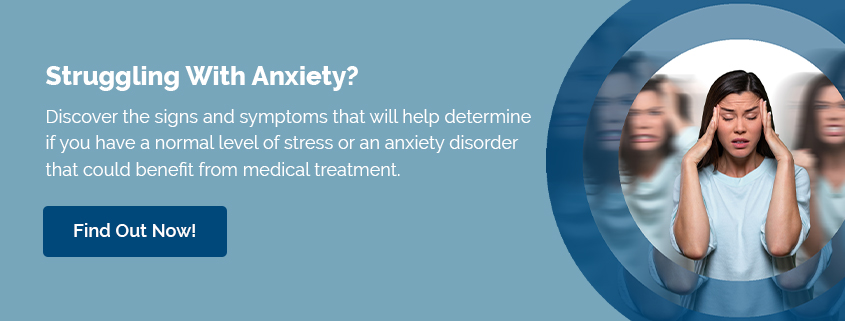What Are the Most Effective Mental Health Therapy Methods?
How many different types of psychotherapy are there? Are they effective at treating specific conditions and behavioral health? What is self-care? What’s the difference between cognitive behavioral therapy, dialectical behavior therapy and narrative therapy?
There are a lot of questions to be answered when it comes to determining which treatment option is the most effective mental health therapy — but try not to get overwhelmed.
While it might seem like all forms of therapy are based on the same principles, slight variations make all the difference when it comes to effective treatment. Follow along to learn more about some of the most effective types of therapy for various conditions.
Common Mental Health Conditions
We all feel sad, anxious, or stressed at times. But, when these feelings begin to interfere with your daily life (or last for an extended period), it may be a sign of a potential mental health disorder. Mental illness is a condition that affects your mood, thinking, and behavior, and if left untreated, it can affect how you act and feel on a daily basis, as well as your long-term health.
Mental health issues are extremely common, and can include depression, anxiety disorder, bipolar disorder, substance abuse, and schizophrenia. Luckily though, in many cases, these illnesses can be effectively treated with interventions like medication, therapy, or both.
*If you feel like you might have a mental health disorder, do not self-diagnose. Instead, reach out to a mental health service provider.
What Is Mental Health Therapy?
Psychotherapy is a type of mental health care treatment. Also called talk therapy, it’s used to help people with mental health problems feel better and improve their ability to function.
Mental health treatment is more than just taking medication. Antidepressants help alleviate symptoms of depression but pairing that with other mental health services can greatly improve overall well-being. If you are struggling, talk to a mental health professional to find the most effective treatment for you.
Types of Therapy
When it comes to mental health, one of the biggest questions people ask is, “What therapy is right for me?” There are multiple types of therapies used to treat a variety of different disorders.
Cognitive Behavioral Therapy
Cognitive-behavioral therapy (CBT) is a type of psychotherapy that helps you understand the thoughts and feelings that influence behaviors. This type of psychotherapy teaches people to recognize and change destructive or disturbing thought patterns. CBT’s goal is to identify unhealthy, negative thoughts and replace them with healthy, positive ones.
Simply changing your mindset from negative to positive will make you feel better about yourself and life in general (and can even reduce symptoms of depression). In addition to improving your mood, cognitive behavioral therapy also helps reduce symptoms of depression through a variety of other techniques:
-
- teaching you ways to solve problems or cope with difficult situations
- teaching you how to relax through deep breathing exercises or meditation
- providing a safe place for you to talk about issues related to abuse or trauma
- supporting healthy lifestyle changes such as quitting smoking or eating healthier foods
Dialectical Behavior Therapy
Dialectical behavior therapy (DBT) is a type of psychotherapy that teaches you new skills to help manage emotions. DBT is often used to help teens and young adults who have extreme emotional reactions and are at risk for self-injury and suicide — but it can be used with individuals of all ages. DBT’s focus is to teach people how to live in the moment and cope with stress.
DBT is an effective form of therapy, especially for those who experience depression, suicidal thoughts, substance abuse problems, or have borderline personality disorder (BPD).
During DBT, you learn to understand your emotions and how to handle them better, leading to improved relationships with others.
Interpersonal Therapy
Interpersonal psychotherapy focuses primarily on communication patterns, social roles, and pressures from interpersonal relationships. It’s used to help treat depression as well as relationship problems, such as divorce or the death of a loved one. The goals of interpersonal therapy are to improve your relationship skills and resolve current conflicts.
The therapist will likely ask about your relationships with family members, friends, coworkers, and romantic partners. By better understanding how you interact with others and taking steps to improve those interactions, it may be possible for you to improve your overall symptoms of depression. Unlike other types of therapies, interpersonal therapy is less concerned with internal conflicts. If you have mild symptoms of depression, interpersonal therapy might be a good option for you.
Narrative Therapy
Narrative therapy is a type of counseling that focuses on the stories that you tell about yourself and how those stories impact your mental health. It’s an effective tool for people who want to work on their perception of themselves, especially if they have been shaped by negative experiences in their lives.
The way that we narrate personal events affects our mental health in many ways. It shapes how we perceive ourselves, it is the basis of how we form our self-esteem, and it influences whether or not others believe us when we ask them for help. Learning how to narrate and share your story can help you build a community of support around you.
Family Therapy
Family therapy is a form of psychotherapy that focuses on helping families or couples work through their problems and changes. Its goal is to help everyone in the family not only grow as individuals but also as a unit.
Family therapy is a form of psychotherapy that focuses on the dynamics of the family and its individual members. It can be used to treat a variety of concerns and issues, especially if the family is going through a big change.
Family therapists are trained to help people understand how they interact with one another in the context of their family system. They also help individuals understand their own thoughts, feelings, and behavior patterns so that they can make positive changes in their lives.
Group Therapy
Group therapy is a form of psychotherapy that involves several people meeting together with a trained therapist. Group therapy can be helpful for people who have similar issues or problems so that they can all benefit from interacting with others in the group.
The facilitator or moderator helps the group apply what they learn in each session to their own lives and relationships. Facilitators also help members express their feelings about themselves and others in a safe environment where they feel supported and can talk freely.
The content of group therapy sessions varies depending on what help is needed. It could be a discussion, where members share their experiences and concerns with each other. It could also be an exchange of information where participants share how they deal with issues such as stress management, anger management, relationships, parenting skills, finances, or more.
Group therapy is an important part of the mental health treatment process, helping patients feel less alone and more supported. It can be an effective option for many types of mental illnesses, including anxiety disorders, eating disorders, depression, and substance use disorder. Group therapy support groups allow individuals to talk about their problems with those who can relate, and can also be useful for other conditions, such as bipolar disorder or schizophrenia.
Exposure Therapy
Exposure therapy is a form of psychotherapy often used to treat anxiety disorders, including phobias, panic disorder, post-traumatic stress disorder (PTSD), obsessive-compulsive disorder (OCD), and other anxiety-related conditions.
Exposure therapy introduces you to your fears gradually so that you become less sensitive to them — or even learn to accept them completely. It helps to change the way that you perceive and react to certain situations or objects, and also helps to develop coping skills and stress management techniques.
For example, if someone is afraid of dogs, exposure therapy might include looking at pictures of dogs, reading about dogs, or eventually visiting a dog park. Over time, this helps to lessen fears and understand that anxiety is just an emotion — not something real or dangerous.
Eye Movement Desensitization and Reprocessing
Eye movement desensitization and reprocessing therapy (EMDR) is a type of psychotherapy that helps people who have experienced trauma, including those with post-traumatic stress disorder (PTSD). It can also help people with anxiety disorders and phobias. EMDR is a form of exposure therapy that incorporates elements of memory work, cognitive processing, and emotional processing.
EMDR treatment may involve recalling the traumatic event while following the therapist’s finger with your eyes as it moves from left to right or any other bilateral stimulation. This allows you to revisit the memory without being overwhelmed by it. The brain then reprocesses the information in a way that makes it easier for you to cope with the memory.
Mental Health Psychotherapy Treatment Options Available Locally
Numerous mental health services and health care professionals with different training backgrounds exist, but it’s important to find the right fit. A good place to start is with your own unique needs and goals.
It’s important to keep in mind that psychotherapy is not a one-size-fits-all treatment model. It involves creating a collaborative relationship between the patient and clinician that best meets each individual’s needs. At the end of the day, the most effective mental health therapy is the one that works for you. If you or a loved one is ready to find help, call Meridian HealthCare.
*If this is an emergency, please call 911 or the suicide helpline at 1-800-273-8255.






